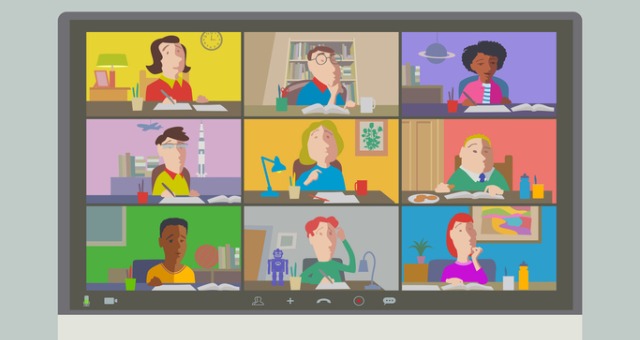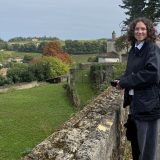
What’s Grad School Like: How It Inspires a Sustainable Writing Life
January 11, 2021
Since starting the MFA in Creative Writing program in Wilkinson College at Chapman University this fall, “What’s grad school like?” is a question we’ve been asked numerous times. Unfortunately, during this new, strange era of online education, it’s hard to formulate a good response. When we were accepted to Chapman University’s MFA in Creative Writing program, we envisioned that we would be surrounded by a community of like-minded writers. We pictured passionate literary discussions, workshops, and internships. We looked forward to improving our skills as writers and determining the type of career we’d like to pursue after the program.
Then the coronavirus outbreak started. And suddenly, we didn’t know what to expect at all. Due to the pandemic, our first semester of graduate school began with all classes conducted in an online-only format. Though we were grateful for the mandate ensuring everyone’s safety, we were still disappointed that we would be missing out on the full MFA experience.
Now that we’re a few months into the program, we’ve learned to view the initial inconveniences of the pandemic as an advantage, with some important lessons about how to sustain a writing life:
You Make Your Own Community
One of the experiences we initially thought we would be missing out on was community. In the past, we believed enrollment in a creative writing program was enough to put us in the same vicinity as other burgeoning writers, which would, in turn, help us be a part of a literary community. We realized instead that we must actively create our own communities, instead of passively waiting to happen upon fellow writers.
This past semester has shown us that it’s possible to become citizens of literary culture even in a virtual setting, as long as we’re willing to put in the effort. Set up virtual book clubs. Share your work with peers. Offer commentary and constructive feedback, even when it’s not required.
In addition, while we haven’t been able to physically meet each other quite yet, we’ve still gotten to know many of our classmates over the past few months. Canvas discussions, Zoom breakout rooms, and one-on-one meetings with our classmates are just a few examples of how professors have helped us connect with others in the program. All of our teachers have been extremely accommodating, allowing us a great deal of time to ask questions and get help with assignments. The future of this academic year may remain unclear, but we don’t doubt that our professors will provide us with the best possible graduate experience under these circumstances.
Say “Yes” to Things That Scare You
If there’s one thing that we’ve learned in our time as graduate students, it’s that we need to take risks, so now we say “yes” to things that seem scary or unfamiliar. In the past, Elizabeth was always a little intimidated by poetry and science fiction, and the idea of tackling both while learning remotely was nerve-wracking. But in the end, she said “yes” because she knew the experience would help her grow as a writer.
Following the advice of alumni and professors who spoke at the MFA Orientation, we’ve tried to get as involved as possible over the past few months, even if it has been virtually. As a tutor for the Writing Center, Hannah gained teaching experiences and met with many of her classmates and undergraduate students. She has also worked as a Student Content Writer for Strategic Marketing and Communications since the beginning of her senior year, where she has really enjoyed writing and reading stories about Chapman. These job experiences have allowed her to grow as a writer, learner, and teacher.
If we don’t take advantage of a particular opportunity today, that one may be gone tomorrow. So next time something scares you, whether it’s in school or later on in your life, don’t say “maybe next time.” Take the chance with “yes.” Some of the most profound lessons that we learn are the ones we least expect.
Proactively Make Time to Do What’s Important
When classes first started, we were under the impression that we would be able to form more consistent writing habits and rid ourselves of our past sporadic bouts of motivation. That didn’t happen.
While the classes in the program did push us to write regularly, that didn’t magically make us more committed writers. Instead, we had to change our habits first in order to get the most out of our experience.
The Aspects of a Writer course taught by Dr. Anna Leahy, Director of the MFA in Creative Writing, has been a great introduction to the MFA and the idea of a sustainable writing life. As a required course for incoming MFA students, we’ve not only met all of our classmates, but we’ve also had the opportunity to learn from many speakers in the industry during our Monday night class.
While it’s difficult to set aside time to write outside of class, especially on top of the program’s coursework, the thesis, and extracurriculars and internships, we are now holding ourselves accountable. We will need to set aside time to read and write on a daily basis, habits we plan to sustain long after we earn our MFAs.
So far, these are our biggest takeaways from our online MFA experience. Of course, we’re looking forward to learning–and connecting–even more once we transition back to in-person instruction. With all of this in mind, we have a feeling that the next time someone asks, “What’s grad school like?” we’ll have an even better answer.

